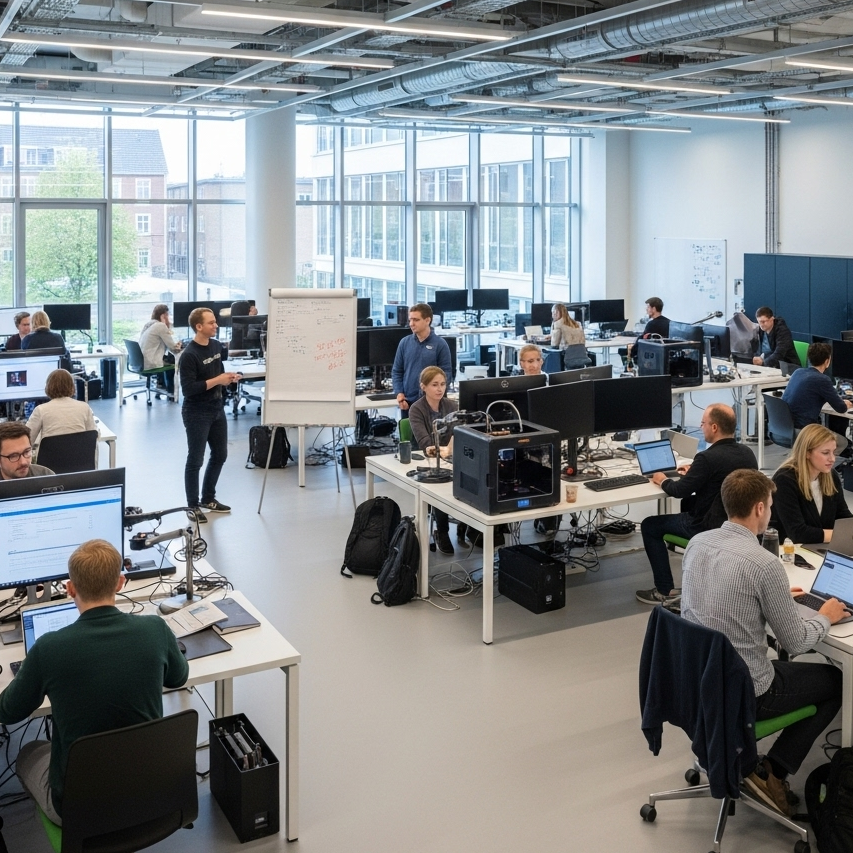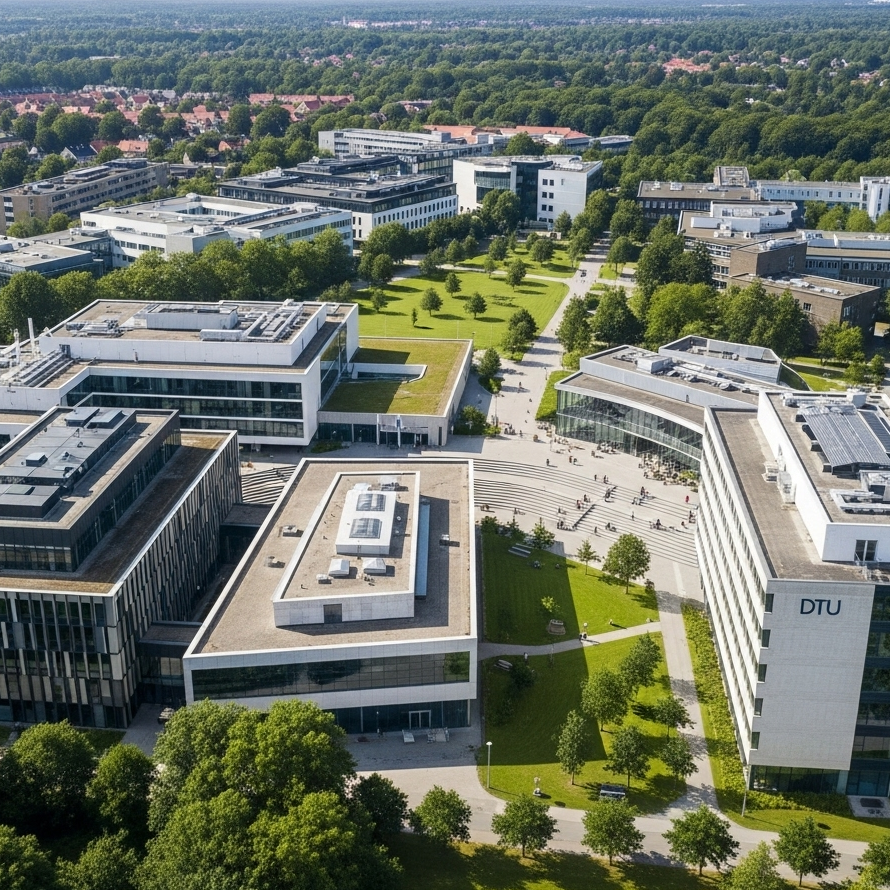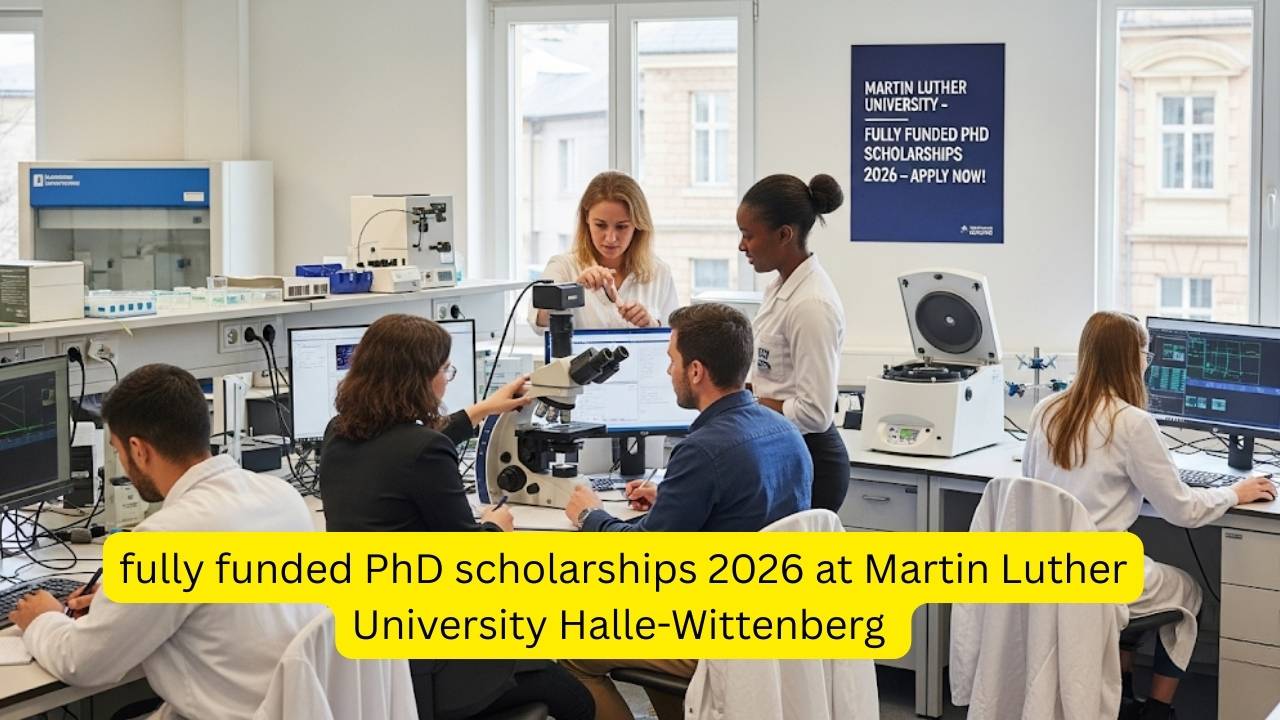Embarking on a PhD is a monumental step, a journey into the depths of your academic passion. For mathematicians, the opportunity to contribute to a field that underpins so much of our technological world is both a challenge and a profound privilege. If you are an aspiring mathematician with a drive to push the boundaries of knowledge, the Applied Mathematics Fully Funded PhD Scholarship 2025 at DTU Denmark might just be the launchpad for your career. This prestigious scholarship at the Technical University of Denmark (DTU) is more than just a degree; it’s a fully-funded, three-year intellectual adventure in a world-leading research environment.

Navigating the world of PhD applications can feel like solving a complex equation in itself. This guide is designed to be your key, providing a clear, encouraging, and comprehensive roadmap to understanding and successfully applying for this exceptional opportunity. We’ll break down the eligibility, demystify the application process, and offer actionable advice to help your candidacy shine.
Applied Mathematics Fully Funded PhD Scholarship 2025 at DTU Denmark
| Key Feature | Details |
| Position Title | PhD Scholarship in Applied Mathematics |
| University | Technical University of Denmark (DTU), Department of Compute |
| Duration | 3 years |
| Funding | Fully funded, with salary based on the Danish collective agreement |
| Application Deadline | 1 August 2025 (23:59 Danish time) |
| Research Focus | Geometric singular perturbation theory |
The Applied Mathematics Fully Funded PhD Scholarship 2025 at DTU Denmark offers a unique chance to earn a doctorate from a top-tier technical university while being fully supported financially.12 With its focus on cutting-edge research, international collaboration, and a nurturing academic environment, it represents a golden ticket for aspiring mathematicians. Remember to meticulously prepare your application, highlight your strengths in mathematical analysis, and let your passion for the subject shine through. Your journey into the heart of mathematics awaits.
Why DTU? A Hub of Innovation and Excellence
The Technical University of Denmark is not just another university; it’s an institution at the forefront of technological and scientific advancement. As one of Europe’s leading engineering institutions, DTU fosters an environment where research has a real-world impact. The Department of Compute (DTU Compute) is Denmark’s largest environment for mathematics and computer science, tackling everything from artificial intelligence and cybersecurity to the fundamental mathematical theories that will power future innovations.
Choosing DTU means:
- Joining a World-Class Research Group: You’ll be embedded within the Section for Mathematics, working alongside leading researchers in dynamical systems.
- International Collaboration: This specific project, funded by the Danish Research Council, includes collaboration with a project partner in Australia, offering a global perspective and networking opportunities.
- A Supportive Environment: DTU is known for its collegial respect, academic freedom, and a strong support system for its international students, including relocation seminars.
- Living in Denmark: Experience the famous Danish work-life balance, high quality of life, and a society that values research and innovation. PhD students in Denmark are considered employees and receive a competitive salary that covers living expenses.
Diving Deep: The Research Project
This PhD position focuses on a fascinating and challenging area of applied mathematics: geometric singular perturbation theory. You will be working on fundamental problems concerning slow-fast analytic vector fields. While that might sound incredibly specific, it’s a field with wide-reaching implications in understanding complex dynamical systems.
Don’t be intimidated if this isn’t your exact area of expertise. In my experience advising students, the most successful applicants are those who demonstrate a strong foundational knowledge and an insatiable curiosity. The selection committee values a solid background in mathematical analysis and a genuine passion for rigorous theoretical mathematics over prior experience in this specific sub-field.

Are You the Right Candidate? Understanding the Eligibility Criteria
DTU is looking for a highly motivated and ambitious candidate. Here’s a breakdown of what you’ll need to be considered:
- Academic Background: A two-year Master’s degree (equivalent to 120 ECTS points) in pure or applied mathematics is essential.8 If you are currently enrolled in a Master’s program, you can still apply, but you must have completed your degree before starting the PhD.
- Strong Analytical Skills: You must demonstrate top-level grades in your mathematical analysis courses.9 This is a non-negotiable requirement, as the project is heavily theoretical.
- Research Potential: While prior knowledge of dynamical systems is a plus, it’s not mandatory. What’s more important is your ability to quickly grasp advanced concepts and your desire to engage with complex research papers.
- Language Proficiency: As the program is conducted in English, you must be proficient in the language.
The university encourages applications from all interested candidates, regardless of age, gender, disability, race, religion, or ethnic background, fostering a diverse and inclusive academic community.10
For an official overview of the PhD program at DTU, check out their graduate studies page. The general admission requirements for PhD studies can be found on the DTU PhD admission portal.
Crafting a Winning Application: A Step-by-Step Guide
Your application is your first introduction to the admissions committee. It needs to be professional, comprehensive, and compelling. All materials must be in English and submitted as a single PDF file through the official DTU application portal.
Here’s what you need to include:
- A Motivating Cover Letter (1-page max): This is your chance to tell your story. Why are you passionate about this specific research area? How have your past experiences prepared you for the rigors of a PhD? Tailor your letter to this position, highlighting your analytical skills and your motivation to contribute to theoretical mathematics.
- Curriculum Vitae (CV): Your CV should be a clean, professional summary of your academic and professional life. Include your educational background, any publications, conference presentations, relevant work experience, and any honors or awards.
- Grade Transcripts and Diplomas: Include official transcripts for both your Bachelor’s and Master’s degrees. Crucially, you must also provide an official description of the grading scale used by your university. This helps the committee accurately assess your performance.
- Master’s Thesis Summary (1-page max): This is a critical document. Summarize your Master’s thesis with a specific focus on the technical aspects that showcase your skills in mathematical analysis. Feel free to include key equations or theorems (in simple terms). Most importantly, connect your thesis work to the potential PhD project in dynamical systems and singular perturbation theory. Show them you’ve thought about how your skills will transfer.
Life as a PhD Student in Denmark
Relocating to a new country is a big part of the journey. Denmark consistently ranks as one of the happiest countries in the world, known for its safety, green living, and excellent public services.11 As a PhD student at DTU, you are considered a full-time employee and will receive a salary that allows for a comfortable standard of living.
Here’s a great resource to learn more about the practicalities of moving to Denmark for your studies.

Take the Next Step
This is more than a scholarship; it’s a call to join a community of thinkers, innovators, and problem-solvers. I’ve seen many successful applicants start their journey with a mix of excitement and apprehension. The key is to channel that energy into creating a thoughtful and thorough application that truly reflects your potential.
If you are ready to take on the challenge and contribute to the world of applied mathematics, this fully funded PhD at DTU is an unparalleled opportunity. Begin preparing your documents, reflect on your academic journey, and craft an application that showcases the brilliant mathematician you are.
CAHR University of York Scholarships and Fellowships 2025: Check Application Process
FAQ
Q1: What is the exact application deadline?
The application deadline is 1 August 2025, at 23:59 Danish time.
Q2: Is the scholarship open to international students?
Yes, DTU welcomes and encourages applications from all interested candidates, regardless of their background or nationality.
Q3: Do I need to have my Master’s degree completed before I apply?
No, you can apply while still completing your Master’s degree. However, you must have successfully obtained your degree before you can be officially enrolled and start the PhD program.
Q4: Is prior knowledge in geometric singular perturbation theory required?
No, it is not a strict requirement. Strong skills in mathematical analysis and a demonstrable capacity to learn advanced concepts are more important.
Q5: What does “fully funded” include?
The scholarship covers tuition fees, and you will be hired as a PhD student for a three-year period. You will receive a monthly salary based on the collective agreement with the Danish Confederation of Professional Associations, which is sufficient for living expenses in Denmark.










